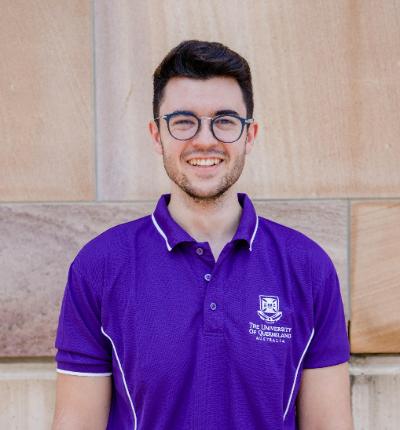Mark Milner
What did you study in your undergraduate degree?
BSc (Hons) Human Health and Disease at Trinity College Dublin, Ireland.

Why did you choose IMB to undertake your research?
Initially, the most important thing for me when looking into PhD programmes was choosing the right project and choosing the right supervisor. I found both of these at the IMB. When I looked into the institute itself, I was really impressed at what it has to offer, from its core facilities, its research output, to its overall friendly environment. Collectively, these three aspects made it really obvious for me that I wanted to do my PhD at the IMB.
Do you have any tips for future students interested in life sciences research?
My biggest pieces of advice would be to 1) choose a project that you are interested in (and don't just choose it because it's a PhD project), 2) talk to current and previous PhD students from the lab you are looking at, to ask them how they find their supervisor, and 3) research isn't smooth sailing, you will have to be prepared to adapt and persevere at times, but you will get through it.
Can you please share a quick description of the research you are currently conducting?
Alzheimer’s disease (AD) is the most common neurodegenerative disease globally. It comprises 80 per cent of all dementia cases and affects more than 5 million people over the age of 65 worldwide. Despite being first described over 100 years ago, we still do not fully understand what triggers AD. Neuroinflammation is a major feature of AD and has recently gained momentum in research. A major player that can drive neuroinflammation is the inflammasome. Inflammasomes are protein complexes in our immune cells that are particularly useful in protecting the body against infections and sterile tissue damage. However, there is very strong evidence to suggest that specific inflammasomes are detrimental in AD, and may help promote disease progression. My project aims to understand the molecular mechanisms by which inflammasomes drive AD pathogenesis and progression. By understanding the interplay between inflammasomes and AD, we hope to elucidate how the inflammasome may be targeted therapeutically for future treatment of AD.
What interested you in joining the IMB Science Ambassador Program?
I really enjoy talking to people and getting them as interested as possible in science and what is being researched right now. When I heard about the IMB Science Ambassador Program, I was really keen to get involved and raise awareness about the important research that IMB is doing every day. I think the more we can communicate our science and make our findings more accessible, the public will start to trust and become more interested in science than ever before.
What do you enjoy doing in your free time?
I enjoy sailing, windsurfing, painting and drawing, eating, sleeping, and rantin
